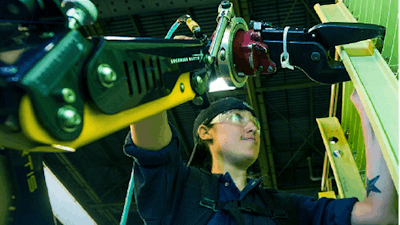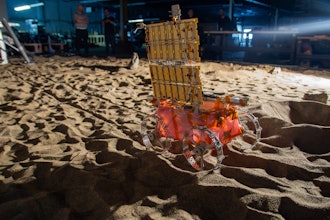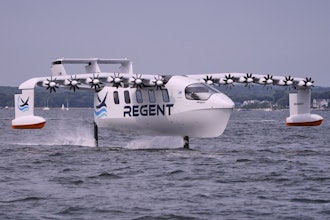
The National Center for Manufacturing Sciences (NCMS) has concluded that industrial exoskeletons, including Lockheed Martin's FORTIS, improve industrial productivity and prevent work injuries.
The findings are included in the final report Industrial Human Augmentation Systems (iHAS) for Improved Shipyard Operations released to Lockheed Martin.
Summarizing tests at a U.S. Navy shipyard, the NCMS report found that the FORTIS exoskeleton could mitigate nearly all injuries from power tools by making the tools effectively weightless during operation. Additional benefits included increased productivity and quality improvements.
The report noted that shipyard work is hazardous, with a high rate of injury in the United States.
To support the test and evaluation efforts, Lockheed Martin provided FORTIS units on loan to two naval shipyards. Testing and evaluation measured worker productivity, work quality and ergonomic considerations.
Feedback was overwhelmingly positive, with participants expressing a desire to use the exoskeleton in their regular work. The study proved that using human augmentation to accomplish shipyard tasks involving heavy tools can improve productivity while mitigating a significant cause of worker injury.
The FORTIS exoskeleton is an unpowered, lightweight exoskeleton that increases an operator's strength and endurance by transferring the weight of heavy loads from the operator's body directly to the ground through a series of joints at the hips, knees and ankles.
Originating from Lockheed Martin's exoskeleton research to assist soldiers in carrying heavy equipment over long distances, the same principles were applied to exoskeleton development for use in industrial settings.






















